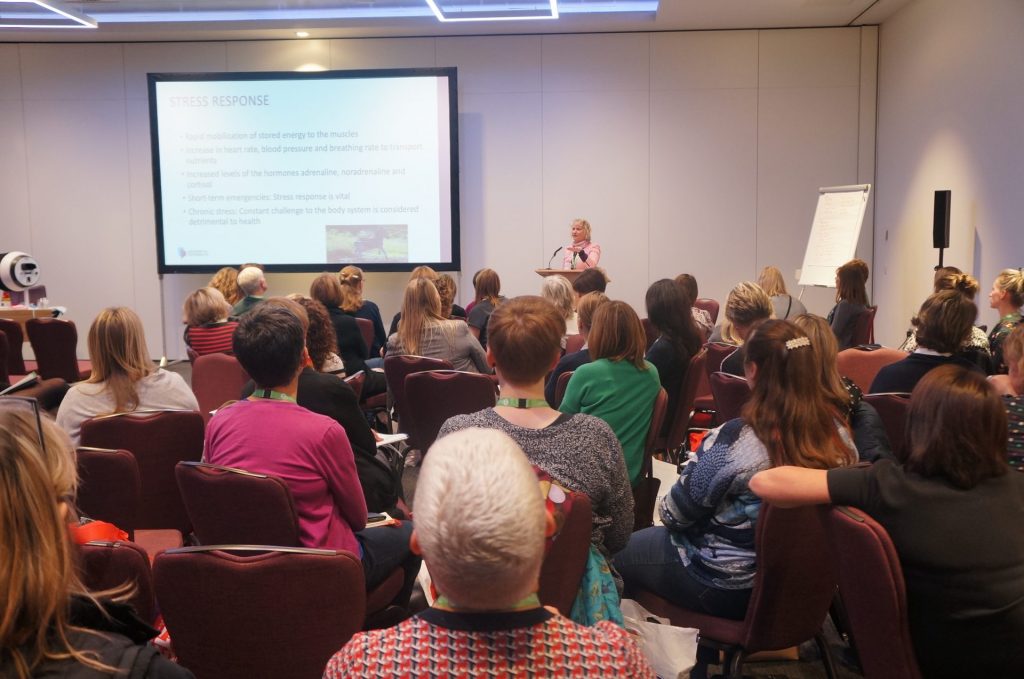Compassion in practice
Featured Products Promotional FeaturesPosted by: Dental Design 7th February 2020

We all know that being kind and considerate to patients is important, but can compassion also be used as a tool for resilience? In people-facing roles where patient interaction is absolutely vital such as dental hygiene or dental therapy, it’s essential for professionals to understand their own emotions and feelings as well as those of others, and this is something that Dr Marina Harris set out to explore in her session at this year’s Oral Health Conference.
Opening with the statement “if we don’t look after ourselves, how are we going to look after our patients?” Dr Harris seated delegates in circular formations that helped to initiate group discussions on the topics raised.
Understanding our own compassion
One of the first segments of the lecture was a questionnaire for delegates. Attendees were encouraged to answer the questions on the sheet as honestly as possible, rating certain statements and indicating whether they strongly agreed with them or not. These questions encouraged delegates to think about how they react to failure or how they see themselves in the workplace, and each answer carried a score. Then, by adding these scores in certain ways, people were able to see how compassionate they were, and their level of self-kindness.
Once this questionnaire was filled in, Dr Harris then encouraged the groups to explore certain aspects of their career and see how these influenced the scores.
The stress of care
The first of these was to look at stress. There are multiple things that can cause people to feel overwhelmed while at work, and the dental hygienists and dental therapists in attendance quickly came up with a substantial list of issues that caused them stress.
Interestingly, this was not just restricted to the workplace, and though reasons such as trying to achieve a work life balance, difficult patients and working alone were mentioned, other reasons were also shared such as lack of sleep, moving house and family relations. This exercise was brilliant as it encouraged people to really think about the origin of the stress they are experiencing and therefore start thinking about ways to alleviate it.
 Making the most of your profession
Making the most of your profession
Following this exploration of stress, Dr Harris shifted focus and asked delegates to discuss their short-term and long-term career goals. This was an inspiring way to rouse the crowd into thinking more deeply about their self-development, and it wasn’t long before people were expressing their dreams to take masters degrees and develop their careers by exploring emerging ideas. There was also mention of retirement plans and looking at ways to get more free time – a range of goals that helped the whole group to think about these aspects of their career and start considering ways to make them a reality.
The last of these group questions was focused around why people wanted to join the profession in the first place. This was a really inspiring moment of the session as it helped people to reveal their core values. The majority of the responses were based around wanting to help other people and make a difference for them, and this really distilled down to the fact that all dental professions are built on care.
An honest approach to self-care
After these enlightening group sessions, the focus of the seminar quickly turned back to stress and how to cope with it. Dr Harris spoke about what causes stress in our bodies and how to look at the questionnaire to see areas where improvements could be made in terms of your approach to self-care, positive psychological wellbeing and motivation to achieve goals.
In an interesting experiment, she got the groups to imagine they had accidentally snapped at a receptionist at work and how they would feel about it, with everyone saying that they would feel guilty and unhappy. Then, Dr Harris asked them to imagine it was one of their friends who had snapped and had come to them for advice. This encouraged great feelings of empathy from everyone – proving that we are often too hard on ourselves when it comes to our own actions.
A positive ending
After a group hug between everyone in the room, Dr Harris ended the lecture reminding delegates that self-compassion is key, and that self-kindness has been proven to release oxytocin and help generate a much better state of mental wellbeing.
Catherine Brook, a delegate attending the session, said:
“The session was informative and provided a good opportunity for group discussion. We need more self-care so that we can help ourselves and our patients. The lecture was well referenced and good for both dental hygienists and dental therapists.”
More positive feedback came from Alison Grant who said:
“Marina helped us identify that we are not alone in our feelings when pressurised in our personal and professional lives. A trouble shared is a trouble halved!”
To find out more about the lectures at this year’s OHC or to see how the BSDHT can support you when you become a member, contact the team today.
For more information about the BSDHT, please visit www.bsdht.org.uk
call 01788 575050 or email enquiries@bsdht.org.uk










